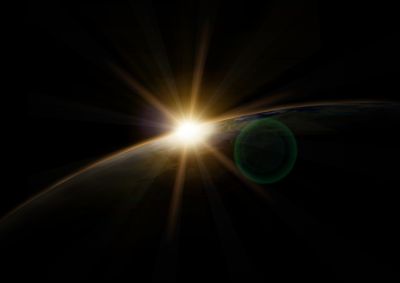Reading the news is always a marathon race between hope and despair, but that conflict has been especially sharp these last few months. While every era has its doomsayers, they’ve lately become a lot harder to dismiss.
Europe remains slumped in depression and wracked by infighting over the future of its union, with no way out in sight. America is sweltering under political stagnation, fraying at the seams from breathtaking inequality and the brutal violence of a police state, and there’s a chance the Supreme Court will soon take away the most consequential domestic reform of the last fifty years. Some economists argue that depression may have become a permanent feature of our economy.
Meanwhile, while the nations of the old order consume themselves in internal squabbling, the next generation of superpowers will be authoritarian dictatorship China and illiberal, patriarchal India. World population is still rising, putting further pressure on already strained resources in some of the planet’s poorest countries. And climate change is coming toward us like an avalanche, threatening to uproot whole countries and disrupt weather patterns that millions of people rely on for survival. And in the midst of it all, human beings are as stubborn, as willfully ignorant, as prejudiced as they’ve ever been.
So, there’s no shortage of reasons for despair. If you want to surrender to pessimism, to stand back and watch the world burn, I doubt I could convince you to do otherwise.
And yet, if you asked me whether I’d rather have lived in a different time, I’d have to say no. In spite of all our flaws, in spite of all the darkness and the chaos and the reasons for despair, our era is also an era of huge, unprecedented discoveries about the world and our place in it – discoveries that expand our perspective and make me hopeful for the future of a species that’s capable of such great deeds.
Our far-ranging emissaries are still revealing undreamt-of wonders. NASA’s Cassini spacecraft has found evidence hinting that Saturn’s moon Enceladus has a warm, life-friendly ocean beneath its icy crust, and the same may be true of Jupiter’s moon Ganymede. The New Horizons mission, after a nine-year journey into the outer reaches of the solar system, is returning its first color images of distant Pluto and its moon Charon. We’ve landed a spacecraft on a comet and finally confirmed the existence of the long-hypothesized Higgs boson. The number of extrasolar planets continues to mount, and this year, for the first time, we’ve detected light reflected directly off one of them.
Our technology, too, is becoming capable of feats that would have seemed like science fiction not long ago. We’re almost able to build a reusable rocket booster that can ferry a payload into orbit, then return to earth and land itself, a spectacular ballet of high technology and artificial intelligence. Autonomous cars, once a wild fantasy, will be on freeways this summer. Human genetic modification is on the near horizon.
There’s just one place where I have to admit that I feel like pessimism is outdistancing optimism, and that’s climate. From the continent-sized megadrought parching California to the unstoppable rising of the sea beneath Miami, from the vanishing glaciers to the island nations preparing to move their entire population, global warming promises to be a huge, civilization-altering crisis. Every other problem we face is a local problem, on a local scale. Climate change is the one and only danger that threatens all civilization, the only peril that can’t be stopped unless we all work together as a species – and our history offers little basis to believe that this could or ever will happen.
And yet, even here, there are new and unfamiliar glimmers of optimism. The price of renewable power is plummeting and its deployment is accelerating, beating one estimate after another for how quickly it would spread. The missing keystone for the green reinvention of civilization – battery technology – continues to advance, with new technologies jostling each other in the pipeline. It’s come to the point where even Al Gore thinks we’re going to beat this. (I want very badly to believe him.)
For better or for worse, we live at the cusp of history. In the course of this generation, the old, familiar patterns of civilization will no longer be viable and will have to change. The only question is whether the change will happen deliberately, with our conscious intent and under our control, or whether it will be forced upon us by necessity and disaster. Just by being alive in this time, we’re the ones who’ll help make that choice. That’s a huge responsibility, if we get it wrong, but it’s equally a huge opportunity to bring about an enduring good for all of humanity. That’s a call that, as a humanist, I don’t intend to shirk.
